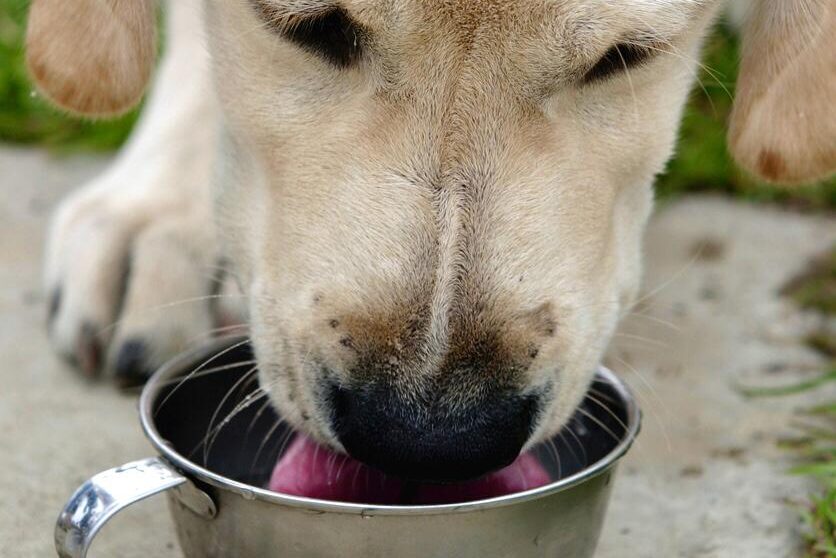1. Insatiable appetite in Labradors

Labradors are known for their insatiable appetite, and this trait can be traced back to their genetics. Research has shown that a specific gene mutation, known as POMC, plays a significant role in regulating hunger. This mutation affects the production of certain hormones that signal fullness, leading to a constant feeling of hunger. Understanding this genetic link can help us better manage their diet by being mindful of portion sizes and ensuring they get enough exercise.
2. Metabolism affects hunger

Metabolism plays a crucial role in determining how quickly the body burns calories and signals hunger. In Labradors, a faster metabolism can lead to increased hunger, as their bodies require more energy to function. Providing frequent, smaller meals can help keep their energy levels stable.
3. Stress impacts hunger

Stress can significantly affect hunger levels in Labradors (and humans). Stress may lead to increased appetite as a coping mechanism, often resulting in overeating. Providing a calm and stable environment can help reduce stress-related eating.
5. Sleep Affects Hunger

Sleep plays a vital role in regulating hunger and appetite. In Labradors, lack of sleep can lead to increased hunger as the body seeks more energy to compensate for fatigue. Providing a comfortable sleeping environment and a consistent bedtime routine helps improve sleep quality.
6. The impact of diet on hunger

Diet plays a significant role in determining hunger levels. A diet high in carbohydrates can lead to increased hunger due to rapid spikes and drops in blood sugar. A balanced diet with adequate protein and fiber helps maintain stable hunger levels and promote satiety.
7. Exercise influences hunger

Regular exercise helps regulate appetite by balancing energy expenditure and promoting a healthy metabolism. Daily walks, playtime, and agility training can help maintain a healthy weight.
8. The role of gut health in hunger

Gut health plays a crucial role in regulating hunger and appetite. An imbalance in gut bacteria can lead to increased hunger and difficulty feeling full. A diet rich in probiotics and fiber supports gut health and promotes a balanced appetite.
9. Age affects hunger

Age can significantly impact hunger levels. Younger Labradors often have higher energy needs and increased hunger due to their active lifestyles. Adjusting diet and portion sizes to suit their age helps regulate appetite and maintain a healthy weight.
10. The role of environment in hunger

The environment can significantly influence hunger levels. A stimulating environment with easy access to food can lead to overeating. Limiting access to food and providing mental stimulation through toys and activities can help regulate appetite.
11. Hydration affects hunger

Hydration plays a crucial role in regulating hunger and appetite. In Labradors, dehydration can often be mistaken for hunger, leading to overeating. Providing constant access to fresh water helps prevent dehydration-related hunger..
12. The role of sensory cues in hunger

Sensory cues, such as the sight and smell of food, can significantly influence hunger levels. The presence of food or the aroma of a meal can trigger increased appetite, even if Labradors are not truly hungry. Keeping food out of sight and using scent-free storage can help reduce unnecessary hunger triggers.


